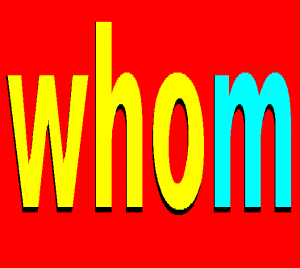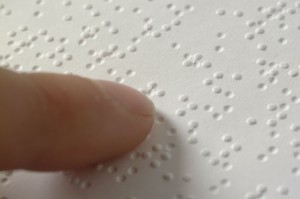I hate when I’m trying to write something in Microsoft Word and it tells me via that super passive aggressive green squiggly underline that I shouldn’t have written the word “who,” that what I meant to say was actually “whom.” Nope, sorry Microsoft Word, sorry English language, but I refuse to ever, ever use the word whom. Except for that last sentence. And I guess any future uses of the word whom in this blog post are exempt as well.
I’ve never said whom in real life. And if anybody ever says whom to me, I’ll walk away in the middle of your sentence. “Rob!” you’ll yell at me as I fade away in the distance. “Where are you going? What did I say?” You said whom. Nobody says whom. It doesn’t even sound right. It sounds like you have something stuck somewhere on your tongue, and you’re simultaneously trying to speak in English while getting that thing unstuck from your tongue.
It’s the most unnecessary wordage in the English language, its sole purpose being to give word snobs a reason to talk down to people when they don’t use it. But like I said a million times already, nobody uses it. If my boss ever came over to me and said, “Hey Rob, I want you to send out this gift basket.” And if I said to my boss, “Hey boss, to whom should I send it?” He’d probably fire me. “Stop being such a smart-ass dick,” he’d shout to me before slamming the door to my back. Because really, you don’t sound smart. You just sound like that person who doesn’t get it, that real people don’t talk that way anymore, that languages evolve, and that the written word follows in step. It’s like, you don’t hear people saying thine and ye and shan’t and giveth. See, well, you can’t actually see it, but Microsoft Word didn’t underline any of those old English words as being misspelled. Because they’re technically words. But nobody uses them. And nobody uses whom. So stop. Just stop.
And while I’m at it, I’ll never use semicolons, I don’t believe in them. I’ll give the same exact argument that I gave for who and whom, they don’t serve a purpose in modern anything, not modern writing, not modern literature, Internet, nothing is better off thanks to a semicolon. It’s a poseur’s trick to make it look like you know how to write, and that’s what it comes down to, I guess, that just because you know the rules doesn’t necessarily make you good at the game. “But Rob, all of those clauses simply must be separated by a semicolon!” Why? It’s outdated. It’s stupid. It prevents the natural flow of words going from page to head. Having clauses separated by commas does the same exact thing, it’s easier on the eye, and you don’t need semicolons. Because they’re lame. You don’t need this symbol ^ either. What’s it called, a carrot? Yeah it’s for old-school style corrections, right? Yeah, sorry carrot, computers have made you obsolete too.
Chu wanna rite like dis? Go ahead, just do it, just write something, anything, because English is a language that’s constantly evolving. It’s why old English and middle English are barely legible to modern readers. It’s why we’re arguing about what the Founders meant when they placed that comma over there when writing the Second Amendment. And this is a good thing (not the Second Amendment part), because rules are important, sure, but you learn the rules in school and then you move on. If anybody’s criticizing grammar outside of a high school classroom, for real, that’s super lame. Just stop it. Super, super lame.


